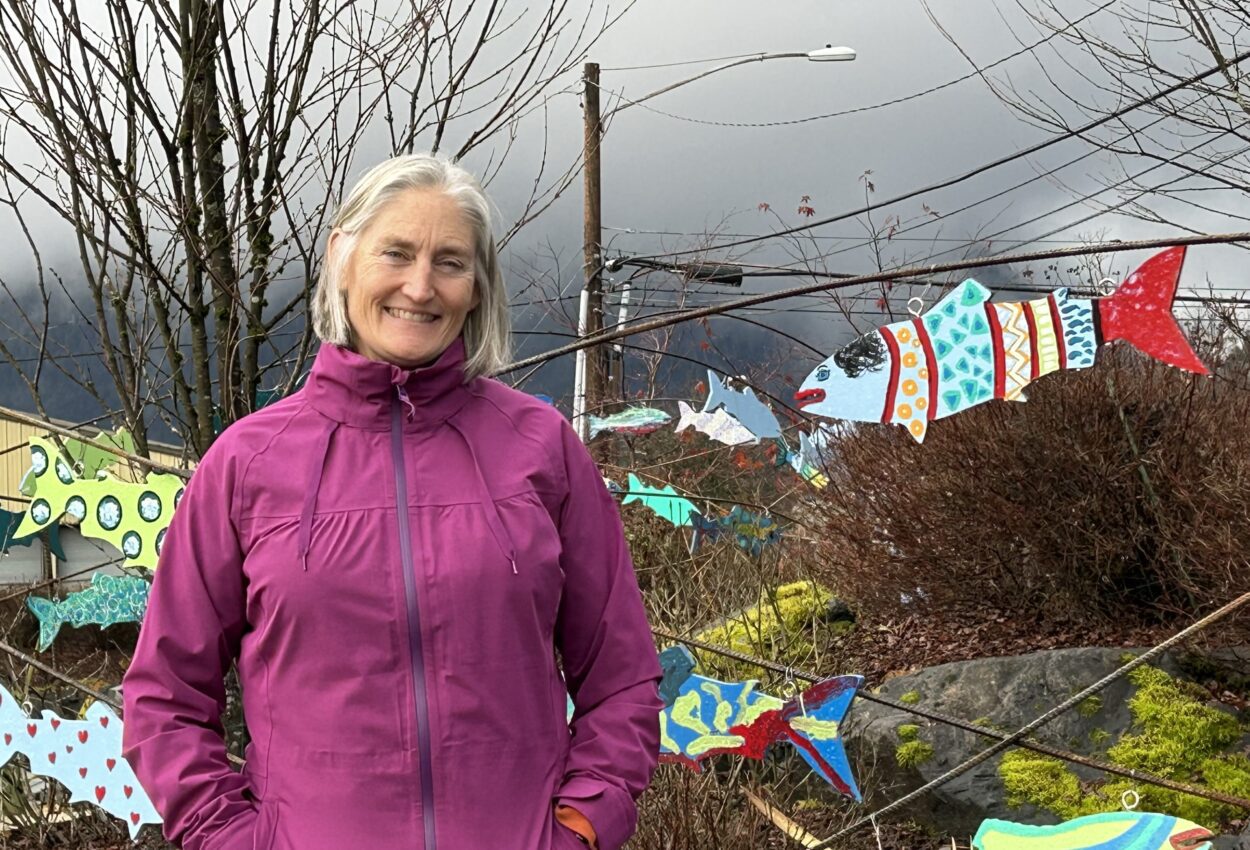
Southeast Alaska’s House District 2 Representative Rebecca Himschoot was back in Petersburg last week to talk with constituents. She will be starting her second legislative session in January. Himschoot spent some of her summer visiting all 21 communities in her district. She says people brought up the same two concerns in Petersburg that they do all over the district.
RH: Ferries are top of mind. So that continues to be a huge thing. And then people are pretty concerned about education funding. I think everyone is pretty clear that we really need an increase in the BSA to be a permanent increase that schools can count on. That’s, you know, I’m not going to call it a permanent fix, because there’s so much more to education than just the funding,but none of the rest of it can happen without the funding. So an increase to the base student allocation is probably my number one priority going forward. The ferries are an ongoing issue. And so I don’t want to say it’s a secondary issue, they’re probably equally important in this region. But the ferries are kind of in progress. And I have reasons for optimism with the ferries. We have a really excellent director right now, came from private industry and is bringing a whole career of experience into sort of refurbishing and rebuilding the ferry system. There’s some funding to do it thanks to Senator Murkowski. The other thing that makes me optimistic is the chairs for transportation in the House and Senate have both had conversations with me in which they expressed support for the ferries, and an understanding of how important the ferries are for our region. So all of that comes together to make me think we’re going in the right direction, it just isn’t going to be fast. It’s something where people have been, I would say beyond patient over the last several years, people will advocate over and over for the ferries, and we’ve just watched it decline and decline and decline. And I think the decline is more or less arrested right now, you know, we had the staff issues and the aging vessels. So we’re still not anywhere near having great service. But I think we’re going to bounce and begin to build it back up. So the AMHS is in a long range planning process and that makes everybody crazy because planning – it’s just another binder on a shelf. But you do have to have a plan in order to make sure you don’t have docks that don’t match vessels and vessels that can’t dock everywhere, and parts that aren’t universal across vessels. And so that planning process is potentially going to lead to a solid path going forward. And people are just going to have to be patient for another few years. And we should start to see it turn around.
HF: What challenges do you anticipate this session?
RH: Well, there’s the obvious gigantic challenge of it being the second half of the legislature. So the 33rd legislature will come to an end, we hope, in May. And that means that every bill that’s in play right now, and any bills that are added, are on the table, and whatever bill doesn’t get passed, dies, and has to be introduced in the 34th legislature. So people are going to be in there going to the mat for their bill. So as we come to the end, there’s a lot of grappling over which things should actually get through in this legislature. But then – it seems like it would be a good problem to have – the price of oil has been high. And that’s probably going to result in about a billion extra dollars for the state, which is great news. There’ll be a lot of fighting about what should happen with that. So I’ve already heard Railbelt colleagues talking about, so to speak, solving Anchorage’s energy crisis. And when you’re in rural Alaska, it’s kind of hard to think about an energy crisis in the Railbelt, you know, like, look at the prices that most rural Alaskans pay. Of course, Petersburg, [with] SEAPA, those prices aren’t as high. But in a lot of parts of this district and certainly out in Western Alaska, the prices of energy are extremely high. So when Anchorage says they want help with their energy crisis – I put that in quotes, “energy crisis” – it’s hard for me to get behind needing to make a solution that serves just that portion of the state. So having a little bit of extra money is an opportunity. But with opportunity comes quite a bit of wrangling over, “Whose opportunity is it?” So I’d like to find capital projects or deferred maintenance across the state because there’s a lot of it. So if we have a little bit of extra one-time money, how can we equitably share that across the state and really help all regions?
HF: You announced that you’re running again in 2024? Why is that?
RH: So, when I got to Juneau – it’s been an incredible honor so far to serve. And learning about each of the 21 communities and each community’s needs has been incredibly helpful. But I don’t feel like I’ve been able to do much about it yet. And so as I climb that steep learning curve, I think I’ll become more effective at being able to actually craft policies that serve my region, protect my region from policies that are bad. But it takes time. I don’t think as a first year legislator that I knew everything I needed to know and I’m still learning. So I think it’s a job that requires more than a year or two of service to actually be able to do the things that need to be done for the region. So I’m committed, I want to continue.










